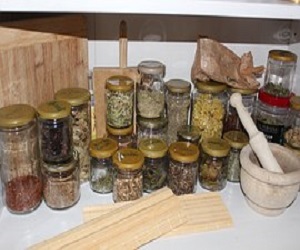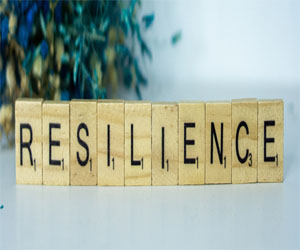


A Blueprint For Thriving In Adversity

Resilience is the ability to bounce back from life's setbacks and challenges. It's a skill that can be cultivated and honed, enabling individuals to not only survive difficult times but to thrive in the face of adversity. Building resilience skills is essential for personal growth and well-being. This article explores the importance of resilience and provides a roadmap for developing these crucial abilities.
Understanding Resilience
Resilience is not an innate trait; it is a set of skills that can be developed over time. At its core, resilience involves a combination of mental and emotional processes that enable individuals to cope with stress, adapt to change, and navigate difficult situations with grace. Here are some key aspects of resilience:
Emotional Regulation: Resilient individuals can manage their emotions effectively. They understand their feelings and have the tools to handle them in a healthy way.
Adaptability: Resilience is closely linked to adaptability. Those who are resilient are more open to change and can adjust their plans and strategies as needed.
Problem-Solving: Resilient individuals approach challenges with a solution-oriented mindset. They seek opportunities for growth and learning in difficult situations.
Optimism: Resilience is associated with a positive outlook. Resilient people can find the silver lining in adversity and maintain hope for the future.
Building Resilience Skills
Develop Emotional Intelligence: Start by enhancing your emotional intelligence. This involves recognizing, understanding, and managing your own emotions and being attuned to the emotions of others. Emotional intelligence provides a strong foundation for resilience.
Cultivate Self-Awareness: Know yourself and your reactions to stress and adversity. Self-awareness allows you to identify your triggers and vulnerabilities, enabling you to respond more effectively to difficult situations.
Build A Support System: Surround yourself with a support system of friends, family, or a therapist. Social support is a crucial element in resilience, as it provides a safety net during tough times.
Practice Stress Management: Develop effective stress management techniques that work for you, whether it's exercise, meditation, deep breathing, or hobbies. Regular stress management prevents burnout and promotes resilience.
Positive Self-Talk: Challenge negative self-talk and cultivate a more optimistic mindset. Replace self-criticism with self-compassion and self-affirmation.
Set Realistic Goals: Establish achievable and manageable goals. Unrealistic expectations can lead to disappointment and erode resilience. Break down large goals into smaller, actionable steps.
Learn From Adversity: Instead of dwelling on past mistakes or challenges, focus on what you've learned from them. Adversity can be a great teacher, leading to personal growth and increased resilience.
Maintain A Healthy Lifestyle: Prioritize self-care by maintaining a balanced diet, regular exercise, and adequate sleep. A healthy lifestyle is essential for physical and emotional well-being.
Seek Professional Help: If you find it challenging to build resilience on your own, don't hesitate to seek the guidance of a therapist or counselor. They can offer valuable tools and strategies for enhancing your resilience skills.
The Benefits Of Resilience
Building resilience skills brings a multitude of benefits. It enhances your capacity to adapt, grow, and thrive in the face of adversity. Resilience fosters emotional well-being, improved mental health, stronger relationships, and greater overall life satisfaction. It empowers you to face life's challenges with courage and grace, knowing that you have the skills to overcome them.
Resilience is a vital skill that can be developed over time, and it is essential for thriving in the face of life's uncertainties and adversities. By cultivating emotional intelligence, self-awareness, a strong support system, and effective stress management techniques, you can build your resilience skills and emerge from challenges even stronger than before.






Maximizing Your Kitchen Productivity
 3. Multi-Task
3. Multi-Task
Efficient cooking often involves multi-tasking. While one dish is simmering, you can be chopping ingredients for the next one. Just be sure to keep an eye on what's cooking to prevent burning or overcooking.
4. Use Kitchen Appliances
Kitchen appliances like food processors, blenders, and slow cookers can save you a lot of time and effort. Food processors can quickly chop, slice, and shred vegetables, while slow cookers allow you to prepare meals in the morning and return to a ready dinner in the evening.
5. Cook In Batches
Cooking efficiency is all about making the most of your time. When preparing meals, consider making extra portions. Leftovers can be used for future meals, eliminating the need to cook from scratch every day.
6. Embrace One-Pot And Sheet Pan Meals
One-pot and sheet pan meals are a time-saving marvel. They involve cooking an entire meal in a single pot or on a single sheet pan, minimizing cleanup and simplifying the cooking process.
Nurturing Connection And Happiness
 Strengthening Bonds: Gratitude is a powerful tool for nurturing deeper and more meaningful connections with others. When we express appreciation and acknowledge the kindness and support we receive, it fosters a sense of trust and closeness. People tend to feel valued and respected when their efforts are recognized, which, in turn, strengthens the bonds between individuals.
Strengthening Bonds: Gratitude is a powerful tool for nurturing deeper and more meaningful connections with others. When we express appreciation and acknowledge the kindness and support we receive, it fosters a sense of trust and closeness. People tend to feel valued and respected when their efforts are recognized, which, in turn, strengthens the bonds between individuals.
Improved Communication: Gratitude opens the doors to better communication in relationships. When we express gratitude, we engage in positive and constructive dialogue. This can help resolve conflicts more effectively and create a more supportive and empathetic environment.
Promoting Empathy: Gratitude encourages us to step into the shoes of others, recognizing their efforts and contributions. This act of empathy can lead to a deeper understanding of their perspectives and feelings, which is essential for building healthier relationships.
Enhancing Emotional Well-Being: Both expressing and receiving gratitude in relationships can boost emotional well-being. It promotes a positive emotional atmosphere, which in turn reduces stress and contributes to overall happiness. When individuals in a relationship feel appreciated, it leads to a more joyful and harmonious connection.
Bridging Tradition And Science
 Herbs In Complementary Medicine
Herbs In Complementary Medicine
Modern healthcare is increasingly embracing the concept of complementary medicine, where herbal knowledge is integrated into conventional treatments. Many healthcare practitioners recommend herbal supplements alongside conventional medications to enhance treatment outcomes and minimize side effects.
Holistic Health And Herbal Medicine
Herbal knowledge aligns well with the principles of holistic health. It recognizes the interconnectedness of physical, emotional, and mental well-being. Herbal remedies are often employed to address not only physical symptoms but also the root causes of ailments, which can include stress, poor diet, or emotional imbalances.
Herbs For Chronic Conditions
Herbal medicine is gaining recognition for its role in managing chronic conditions. Conditions like diabetes, hypertension, and arthritis can often be improved with the use of specific herbs. For instance, cinnamon has shown promise in helping regulate blood sugar levels in individuals with diabetes.
Natural Remedies For Mental Health
Herbs are increasingly used in the management of mental health conditions. Plants like lavender, chamomile, and valerian are valued for their calming and anxiety-reducing effects. They offer a gentler alternative to pharmaceuticals for individuals seeking natural solutions to anxiety, stress, and depression.
Safety And Regulation
As herbal remedies become more popular, it's essential to address safety and regulation. Many countries have regulatory agencies that oversee the production and sale of herbal supplements, ensuring quality and safety. Additionally, consulting with a qualified herbalist or healthcare practitioner is crucial to avoid potential interactions with medications and ensure proper dosing.
Unlocking The Key To Well-Being
 At the heart of the science of positive emotions lies the idea that these feelings serve essential functions in our lives. Positive emotions act as a buffer against stress and adversity, helping us build resilience. When we experience joy or gratitude, our brains release neurochemicals like dopamine and endorphins, which counteract the effects of stress hormones. This neurobiological response can reduce anxiety and improve overall mental health.
At the heart of the science of positive emotions lies the idea that these feelings serve essential functions in our lives. Positive emotions act as a buffer against stress and adversity, helping us build resilience. When we experience joy or gratitude, our brains release neurochemicals like dopamine and endorphins, which counteract the effects of stress hormones. This neurobiological response can reduce anxiety and improve overall mental health.
Moreover, positive emotions are integral to forming and maintaining social bonds. Love, kindness, and empathy are all positive emotions that facilitate our interactions with others. When we experience these emotions, our brains release oxytocin, often referred to as the "love hormone," which fosters trust and connection. This bonding is essential for building strong relationships and maintaining a support network, which, in turn, contributes to our well-being.
Research also indicates that positive emotions can enhance our cognitive abilities. When we are in a positive emotional state, our brains become more flexible and creative. We are better at problem-solving, thinking outside the box, and adapting to changing circumstances. This cognitive advantage not only helps us in our daily lives but also in professional settings, making us more effective and innovative individuals.
Cultivating positive emotions is a skill that can be developed. One common method is the practice of gratitude. Keeping a gratitude journal, where one regularly records things they are thankful for, has been shown to increase overall well-being. Mindfulness meditation is another technique that can foster positive emotions. By focusing on the present moment without judgment, individuals can become more attuned to the positive aspects of their lives.
A Journey Of Balance And Well-Being
 The Mind: A Key Player
The Mind: A Key Player
The mind plays a pivotal role in the journey to holistic health. A healthy mind is one that is free from excessive stress, anxiety, and negativity. To achieve this, mindfulness practices, such as meditation, deep breathing, and positive affirmations, are essential. These practices help in reducing the mental clutter and creating a sense of calm and clarity.
Caring For The Body
The body, our physical vessel, must be treated with love and care. Proper nutrition, regular exercise, and adequate rest are fundamental elements of holistic well-being. A balanced diet rich in nutrients fuels the body, while exercise strengthens it. Restorative sleep allows the body to repair and rejuvenate. All these components work together to ensure the body functions optimally.
Nurturing The Spirit
Nurturing the spirit involves finding a sense of purpose and connection with something greater than ourselves. This might be achieved through religion, spirituality, or even a deep appreciation for nature. Spirituality brings a sense of inner peace and resilience in the face of life's challenges.
The Journey To Holistic Health
The road to holistic health is not a one-size-fits-all path. It's a unique journey for each individual. It starts with self-discovery, an exploration of what truly makes you happy and fulfilled. This can involve setting clear intentions and goals, understanding your values, and aligning your daily life with them.
It's also about letting go of things that no longer serve you, whether they are unhealthy habits, toxic relationships, or stressors that hinder your well-being.
Effective Strategies For Navigating Life's Challenges
 Effective Resilience Strategies
Effective Resilience Strategies
Develop Emotional Intelligence: Emotional intelligence involves understanding and managing your emotions effectively. It's a foundational skill for resilience, as it allows you to navigate challenging situations with self-awareness and emotional control.
Maintain A Growth Mindset: A growth mindset is the belief that you can learn and grow from experiences, including failures. Embrace challenges as opportunities for growth rather than setbacks, and you'll be better equipped to bounce back.
Cultivate Social Connections: Building a strong support system is vital for resilience. Nurturing positive relationships with friends and family provides emotional support, encouragement, and a sense of belonging during tough times.
Practice Self-Care: Taking care of your physical and mental well-being is essential. Regular exercise, proper nutrition, and adequate sleep contribute to your resilience by strengthening your body and mind.
Set Realistic Goals: Break down your long-term goals into smaller, achievable steps. This approach fosters a sense of accomplishment and progress, boosting your self-esteem and resilience.
Embrace Problem-Solving: Resilient individuals focus on solutions rather than dwelling on problems. When faced with challenges, assess the situation, identify possible solutions, and take action.
Mindfulness And Stress Management: Mindfulness techniques, like meditation and deep breathing, help you manage stress and anxiety. They promote emotional regulation and a sense of calm in the face of adversity.
Nurturing The Soul
 The Essence Of Emotional Well-Being
The Essence Of Emotional Well-Being
Emotional well-being encompasses the ability to understand, express, and manage our emotions effectively. It's about finding a balance that allows us to navigate life's challenges with resilience, experiencing joy, and finding solace in moments of sorrow. Essential oils, through their natural aromatic compounds, can become powerful allies in this emotional journey.
Aromatherapy's Emotional Arsenal
Aromatherapy, the practice of using essential oils for therapeutic purposes, recognizes the intimate connection between our sense of smell and the limbic system, which governs our emotions. Certain essential oils have distinct properties that can help with various emotional states.
Lavender: Often hailed as the universal oil, lavender is known for its calming and soothing effects. It can help reduce anxiety, stress, and promote relaxation.
Citrus Oils (e.g., Orange, Lemon, And Grapefruit): These oils are uplifting and refreshing, making them ideal for boosting mood and alleviating feelings of sadness or melancholy.
Chamomile: Both Roman and German chamomile varieties are known for their ability to ease irritability, reduce anger, and promote a sense of inner peace.
Frankincense: Renowned for its spiritual and grounding properties, frankincense can aid in meditation and emotional healing, making it a valuable tool for finding inner serenity.
Managing Stress And Anxiety
One of the most prevalent emotional challenges in today's fast-paced world is stress and anxiety. Essential oils can be powerful stress relievers, helping to calm the mind and reduce the physical and emotional tension associated with these conditions. Creating a calming ambiance with oils such as lavender, chamomile, and frankincense can offer much-needed respite from the chaos of daily life.
A Guide To Informed Choices
 Understanding Gluten And Its Implications: First and foremost, it's crucial to understand what gluten is and why it matters for some individuals. Gluten is a protein found in wheat, barley, rye, and their derivatives. For people with celiac disease, even the tiniest amount of gluten can trigger an autoimmune response that damages the small intestine. Those with non-celiac gluten sensitivity may experience digestive discomfort and other symptoms when consuming gluten. Therefore, accurate gluten labeling is essential for their well-being.
Understanding Gluten And Its Implications: First and foremost, it's crucial to understand what gluten is and why it matters for some individuals. Gluten is a protein found in wheat, barley, rye, and their derivatives. For people with celiac disease, even the tiniest amount of gluten can trigger an autoimmune response that damages the small intestine. Those with non-celiac gluten sensitivity may experience digestive discomfort and other symptoms when consuming gluten. Therefore, accurate gluten labeling is essential for their well-being.
The "Gluten-Free" Label: The most critical label to look for is "gluten-free." The "gluten-free" label signifies that the product contains less than 20 parts per million (ppm) of gluten. This threshold is considered safe for the vast majority of people with celiac disease. However, it's essential to remember that some individuals may still react to very low levels of gluten, so it's a personal decision how strict one wants to be.
The Benefits Of Gluten-Free Labels:
Clarity: Gluten-free labels provide clarity and peace of mind. When you see this label on a product, you can confidently purchase and consume it, knowing it meets gluten-free standards.
Efficiency: Gluten-free labels save time. They eliminate the need to scrutinize ingredient lists, which can be a tedious and potentially error-prone process.
Variety: The availability of gluten-free labeled products has expanded significantly in recent years. This means individuals on a gluten-free diet can enjoy a wide variety of foods and options that cater to their dietary needs.
Hidden Gluten Sources: Even when a product doesn't contain obvious gluten-containing ingredients, there might still be hidden sources of gluten. It's crucial to be aware of these potential pitfalls: